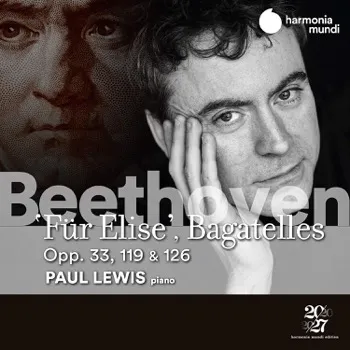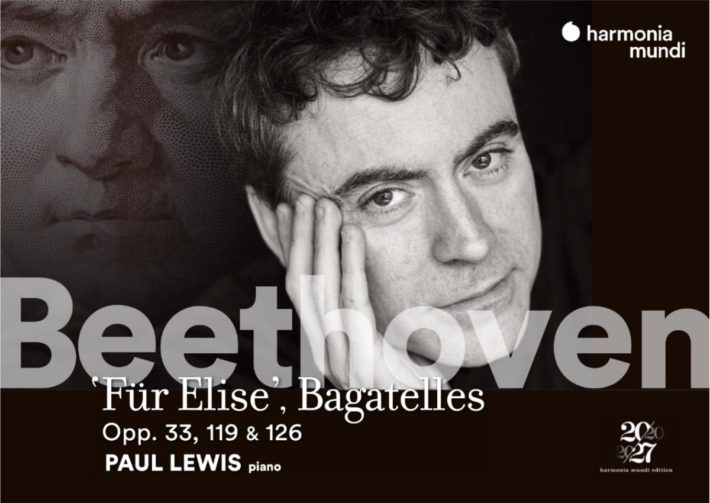The bagatelle is described as a short musical trifle. However, that was not exactly what Beethoven had in mind when he wrote the Op. 33, 119, and 126 sets. Though we often look to his larger form works as a narrative to his compositional trajectory, these shorter works are not to be overlooked as equally meaningful. Op. 33 (1801-02) marks an interesting bridge between Beethoven’s early and middle periods. Though they initially seem to embody the younger Beethoven, there are already hints of a shift forward.

Lewis gives a convincing performance overall to the early set. Take, for example, the second C major Bagatelle, which echoes the middle period. Lewis brings out the vibrant personalities that emerge from this small masterpiece. He can take an orchestral approach, rich and well-voiced in the fuller sections, or capture the Scherzo’s spirit: Lewis emphasizes the lopsided accents with just enough of a humorously ‘awkward’ pause. In no. 3, Lewis skillfully brings out the composer’s harmonic experimentation, with wise usage color changes.
The first five Bagatelles Op. 119 were likely composed during the Op. 33 period, and the remaining six includes 2 “leftovers” from the Diabelli Variations. Nonetheless, they form a strong cycle, which Lewis communicates convincingly. Through his approach, the musical trifle has now taken on a much more contemplative aspect. The shortest bagatelles (Nos. 9 and 10) are intriguing, and not just for their brevity. The A minor (track 16) is a swift, uncertain waltz whose dynamic swells Lewis crafts masterfully (not easy, given the transiency of the phrases), bringing forth both a dancelike and dramatic feel. The following selection might initially seem like a fragment, but his interpretation becomes a whimsical and complementary response to the waltz.
Op. 126 came out in 1823, roughly around the same time as his Ninth Symphony and last three piano sonatas. The set is striking not just for of the difference in style from the earlier sets, but for the way Beethoven transforms his treatment of the form, from a sometimes light diversion to short pieces with substantial weight. No. 1 (track 19) has echoes of the Op. 110 Sonata which extends beyond the common key: there is a meditative beauty which Lewis presents beautifully in moments like 1’42”-2’18”, as if playing directly to a single listener.
The Op. 77 Fantasia (1809) is a musical enigma that shows Beethoven’s addition of unpredictability to an already improvisatory musical form. But herein lies the challenge: for a piece that changes course so often, how does one maintain its continuity? Lewis does this through the element of surprise, which awaits at every rest and turn of a phrase. His performance brings excitement while still evoking an impressive musicality and display of the work’s textures. The piano is at times a powerful ensemble, and at others, a conversation between a pianist and chamber orchestra. Lewis also brings rare magic to the banged-up “Für Elise”, which under his fingers finds an introspectiveness not often heard in other interpretations.
The recording, made at the renown Teldex Studio Berlin, is of pristine quality, one that accentuates the warm nuances of the performance. Usual comparisons seem redundant; we have long known that Paul Lewis is one of the finest Beethoven interpreters of our time. After recording the complete Piano Sonatas, Diabelli Variations, and the Piano Concertos, this fine release leaves us with only a few sets of variations to complete a long-lasting legacy.
Beethoven – Bagatelles Op. 33, 119, 126
Für Elise, Klavierstück Wo0 60, 61, 61a
Fantasia Op. 77
Paul Lewis – Piano
Harmonia Mundi, CD HMM 902416




















